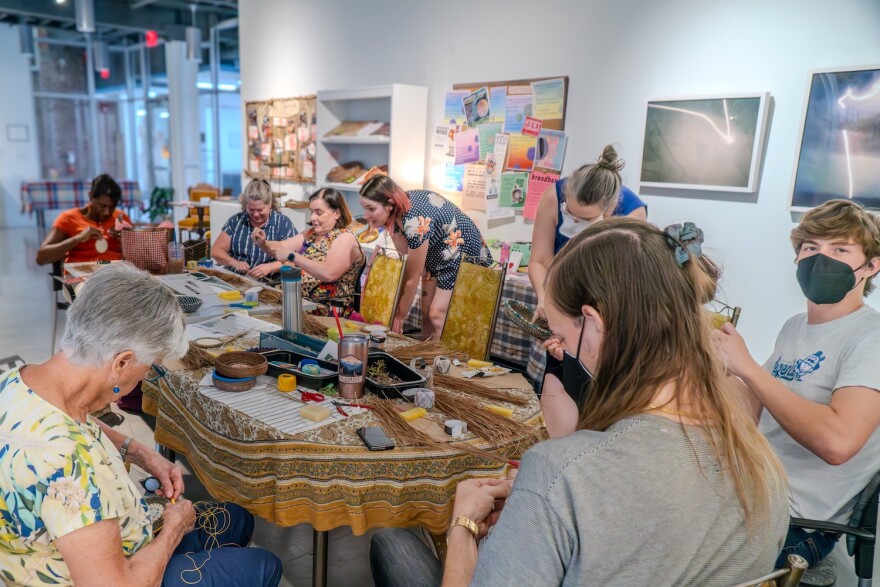From August 2 - 8, the Institute for Social Ecology will hold its annual Summer Intensive at artfarm, a cooperative arts and organizing space on Winchester Road. The Summer Intensive is a week-long gathering of artists, organizers, and educators exploring the role of imagination in political transformation.
The event was originally scheduled to take place in Los Angeles, but the region’s wildfires prompted a change of venue.
Max Puchalsky is a member of Kentucky-based artist collective Solarpunk Surf Club, which helped bring the program to Lexington. He said Kentucky’s history as a place of contradictions brings unique perspectives to the table.
"Flooded hollers tell stories of extraction, but also underground labor organizing and the stubborn resistance to fossil extraction," explained Puchalsky. "We're a place where ICE is patrolling the streets, but we have a tenants union that is winning bans on housing discrimination. We see prisons that are rising on flats and mountaintops, but a land rematriation project has successfully blocked one of them."
Puchalsky said he sees Kentucky as a place on the front lines of "disaster capitalism" - the practice of wealth and power consolidation following ecological disaster.
"Which means that we're also primed to be a front for disaster communalism," said Puchalsky. "In other words, as the state attacks different communities like trans youth or migrants or houseless folks, grassroots models of collective care are taking root in these shadows."

Workshops will cover abolition, herbalism, land rematriation, and more, with participation from groups like Kentucky Tenants, Breadbox Project, and the Appalachian Rekindling Project. Solarpunk Surf Club will also present at the intensive.
Solarpunk Surf Club's projects often center creativity through collaboration. For example, they produced the print-and-play storytelling card game Solarpunk Futures, which won a 2023 Games for Change Award. Players take on the perspective of residents of a utopian future, and draw cards which prompt them to collectively imagine how they got there. Puchalsky said this kind of play makes room for questions that imagine possibilities beyond the status quo.
“How do we build power in the wreckage?" asked Puchalsky. "How do we grow freedom in the cracks of a broken system? What is the art of organizing in a time of collapse and possibility? And most particularly, how do creative practices and community organizing intertwine to cultivate regenerative futures?”


